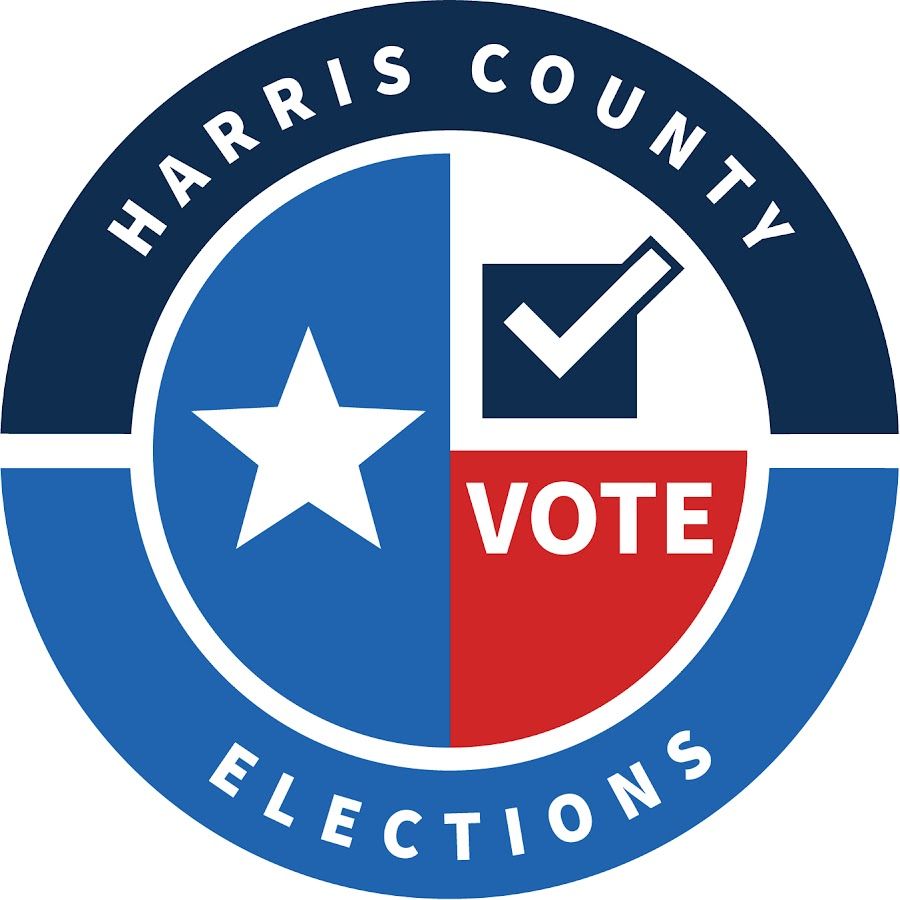State of Texas Constitutional Amendments
Voting on amendments fulfills your right and duty as a Texas citizen. This approval or disapproval of changes to our constitution gives you a direct voice in our state government.
Table of Contents:
The current Texas Constitution was adopted in 1876 and All potential amendments that appear on your ball has been amended more than five-hundred times. Compare that to the United States Constitution, which has only twenty-seven amendments.
Why does the Texas Constitution have so many amendments? Rules for how state and local governments should run are very specific in the Texas Constitution, unlike in the U.S. Constitution. Therefore our state lawmakers often have little freedom to make changes to laws without amending the state constitution. The proposed changes must pass both houses of the legislature by a 2/3 vote, and then the voters must approve all changes.
All potential amendments that appear on your ball has been amended more than five-hundred times. Compare must originate in the legislature. The Texas Constitution cannot be amended by citizen-led ballot initiatives, that to the United States Constitution, which has only referendums, or petitions, as in some other states.
We vote on a slate of amendments in the fall of
odd-numbered years, following the spring legislative session. Topics vary, and can cover a wide range of topics, and some may affect only a few counties.

Proposition 1
“The constitutional amendment providing for the creation of the permanent technical institution infrastructure fund and the available workforce education fund to support the capital needs of educational programs offered by the Texas State Technical College System.”
EXPLANATION:
The Texas State Technical College (TSTC) System was established in 1965 to provide technical vocational education. It currently has 11 colleges across the state and offers two-year degrees and certificates in technical and vocational areas. 11,436 students attended Texas State Technical Colleges in 2023-2024.
If this proposed amendment were passed, it would use $52 million to create a permanent fund to support the TSTC. Earnings from this fund will be used for capital projects such as buying land, buildings and equipment to support the educational programs offered by these colleges.
ARGUMENTS FOR:
- Provides a reliable source of funding for Texas State Technical Colleges.
- This fund would support a skilled workforce which is needed by Texas businesses and industry.
- A healthy technical college system helps Texans who desire a career in these fields.
ARGUMENTS AGAINST:
- This money could be used to fund community colleges across Texas which already provide two-year degrees and certificates and serve as many as 700,000 students per year.
- Businesses should pay for their own job training and certifications.
- Money for the permanent fund should be returned to the taxpayers.
Proposition 2
“The constitutional amendment prohibiting the imposition of a tax on the realized or unrealized capital gains of an individual, family, estate, or trust.”
EXPLANATION:
When a capital asset (an investment such as stocks, bonds, and real estate) increases in value, the increase is considered a capital gain. Realized capital gains are the profits made when the investment is sold. Unrealized capital gains are the potential profit that could be made if that investment was sold at its then current market value, even though it is not sold.
Texas does not currently tax either realized capital gains or unrealized capital
gains, and the recent Legislature did not propose any such tax.
ARGUMENTS FOR:
- The proposed amendment would help maintain Texas’ reputation as a business friendly and tax friendly state.
- Taxing capital gains reduces incentives for savings and investments, and lowers economic growth.
- Putting this ban on capital gains taxes in the constitution would provide certainty for financial institutions interested in expanding in Texas.
ARGUMENTS AGAINST:
- In the future, the Legislature would not be able to tax capital gains even if there were a budget deficit and these revenues were needed.
- This proposition is unnecessary because a capital gains tax is not being considered by the legislature.
- Not taxing capital gains shifts the tax burden from people with wealth or assets to those without wealth who are more impacted by sales taxes.
Proposition 3
“The constitutional amendment requiring the denial of bail under certain circumstances to persons accused of certain offenses punishable as a felony.”
EXPLANATION:
Currently, denying bail typically requires a full trial, which makes it very rare. Therefore, if a defendant has the money to post bond, they must be released even if there is evidence the person may commit future violent crimes.
This proposed amendment would expand the options available to officials setting bail, including the option to deny bail to ensure the safety of the community. This would apply to individuals accused of murder and similar violent offenses.
ARGUMENTS FOR:
- Prevents high risk individuals from committing additional crimes while out on bail.
- By limiting the denial of bail to only the most serious offenses, it is assured that only those who pose the greatest risk are denied bail.
- There would be safeguards to protect defendants’ rights, such as the right to be represented by counsel at bail denial hearings, the right to appeal, and provisions to protect a right to a speedy trial.
ARGUMENTS AGAINST:
- Judges currently have the discretion to set high bail amounts for individuals considered high risk, which can prevent their release.
- Denying bail to certain defendants could result in overcrowding of jails, requiring more taxpayer funding for additional jail staff.
- Being denied bail increases the costs for defendants and undermines the pre-sumption of innocence.
Proposition 4
“The constitutional amendment to dedicate a portion of the revenue derived from state sales and use taxes to the Texas water fund and to provide for the allocation and use of that revenue.”
EXPLANATION:
The Texas Water Fund is a special fund created in 2023 and administered by the Texas Water Development Board to assist in financing water projects in Texas. This proposition would provide that in each fiscal year, the first $1 billion of sales tax revenue in excess of $46.5 billion would be allocated to the Texas Water Fund.
This funding would continue through 2047, and would be used to address future
water needs in Texas. The amount could be adjusted by the legislature with a
two-thirds vote.
ARGUMENTS FOR:
- The funds would be used to upgrade aging water infrastructure as well as for new water supply projects. This would address the shortfall between water demand and available water supply, and improve the safety of the water supply.
- Increasing Texas’ water supply is critical to continued economic growth and to meet the needs of farmers in Texas.
- Provides reliable funding for long-term water supply and infrastructure projects.
ARGUMENTS AGAINST:
- New water supply projects, such as seawater desalination and the reuse of produced water, could pose environmental risks if adequate safeguards are not put in place.
- This proposed amendment transfers oversight of the monies from the legislature to the governor-appointed Texas Water Development Board.
- Water conservation is a critical component of the strategy to meet future water needs in Texas, and is not addressed by this plan.
Proposition 5
“The constitutional amendment authorizing the legislature to exempt from ad valorem taxation tangible personal property consisting of animal feed held by the owner of the property for sale at retail.”
EXPLANATION:
Under current law, animal feed is typically exempt from taxation at each location or transaction during its life cycle, from the field where it’s harvested to the purchase of the feed by a farmer or rancher, except for when the feed is sitting in a store as inventory.
This proposed amendment seeks to address this inconsistency by amending the Texas Constitution to authorize the Texas State Legislature to exempt animal feed held by an owner for retail sale from personal property taxes.
ARGUMENTS FOR:
- Removing this tax would help lower prices for farmers and ranchers, who are already dealing with rising operational expenses.
- Animal feed is part of our food chain, of which other parts are exempt from property taxes.
- Due to the seasonal needs of the agricultural business, warehouses are fully stocked when property taxes are calculated. This results in higher taxes on sellers that are passed onto the consumers.
ARGUMENTS AGAINST:
- Inventory of other businesses is taxed as personal property since they are used to produce income. This proposition would treat those businesses unfairly.
- Exemptions for one group of taxpayers can unfairly shift the tax burden to other taxpayers.
- Inventory is constantly changing so the tax break cannot be easily measured.
Proposition 6
“The constitutional amendment prohibiting the legislature from enacting a law imposing an occupation tax on certain entities that enter into transactions conveying securities or imposing a tax on certain securities transactions.”
EXPLANATION:
Proposition 6 would amend the Texas Constitution by not allowing the state to tax securities transactions. Securities transactions are the buying and selling of financial assets such as stocks and bonds. Currently, no state levies taxes on securities transactions.
ARGUMENTS FOR:
- Many people rely on investments like 401(k)s and IRAs to save for retirement.
- A tax on securities transactions could reduce their profits and make it harder to save money.
- Adding a tax on buying and selling investments could increase costs, discourage trading, and reduce the value of people’s investments, which might hurt the Texas economy.
- Making this ban part of the Constitution would give financial companies more certainty, help Texas attract more investment businesses, and create jobs.
ARGUMENTS AGAINST:
- If this ban is added to the Constitution, the state would lose a tool it might need to deal with budget problems in the future.
- Not being able to tax financial transactions might mean the state has to rely more on sales taxes to raise money later on, which puts more of a tax burden on lower-income people.
- This amendment is not needed, since no one in the state government is actually trying to create this kind of tax right now.
Proposition 7
“The constitutional amendment authorizing the legislature to provide for an exemption from ad valorem taxation of all or part of the market value of the residence homestead of the surviving spouse of a veteran who died as a result of a condition or disease that is presumed under federal law to have been service-connected.”
EXPLANATION:
This proposition would allow the Legislature to provide a property tax exemption for spouses of veterans who died from a condition or disease related to their service. This proposed amendment fixes a gap with respect to veterans who, while they do not qualify as fully disabled, died due to a condition or disease related to their service. These exemptions could be transferred to a subsequent property for an equal amount, but would apply only to a surviving spouse who had not remarried since the veteran’s death.
ARGUMENTS FOR:
- Expanding the current property tax exemption for this group ensures fair treatment for these veterans and their families.
- While this would apply to a small population of qualifying surviving spouses and have minimal financial impact to the state, the exemption would benefit military communities.
ARGUMENTS AGAINST:
- Expanding property tax exemptions could reduce tax revenues for school districts and local taxing authorities, especially near communities with large populations of veteran families who could potentially qualify for the exemption.
- Exemptions for some property owners can shift the tax burden to other homeowners, making it harder for new buyers to afford homes.
Proposition 8
“The constitutional amendment to prohibit the legislature from imposing death taxes applicable to a decedent’s property or the transfer of an estate, inheritance, legacy, succession, or gift.”
EXPLANATION:
If passed, this amendment would prohibit the state of Texas from imposing a tax on the estate of a deceased person, commonly referred to as a “death tax”. The state would still be able to impose or change real estate title and motor vehicle transfer taxes, or normal property taxes.
ARGUMENTS FOR:
- Avoids double taxation since inherited assets have often been taxed previously during the deceased person’s lifetime.
- Would limit the impact on family-owned businesses, where heirs may struggle to pay the tax burden without liquidating the business.
- Inheritance taxes are complex. They cost time and money for the government to administer and for individuals to comply.
ARGUMENTS AGAINST:
- Inheritance taxes can generate revenue for the government to fund public services and reduce budget deficits.
- May reduce excessive wealth accumulation, potentially contributing to a more balanced distribution of wealth.
- Encourages individuals to save and invest more during their lifetime by not relying on expected inheritance.
Proposition 9
“The constitutional amendment to authorize the legislature to exempt from ad valorem taxation a portion of the market value of tangible personal property a person owns that is held or used for the production of income.”
EXPLANATION:
Local taxing authorities, such as cities, counties, hospital districts, school districts and local college districts, tax personal property held or used for the production of income. This is a source of income used by these entities to pay for the services they provide to residents.
Business personal property that is held or used for the production of income includes inventory, computers, office furniture, manufacturing equipment, vehicles, machinery, and supplies.
This does not include real estate. This tax is applied whether such personal property is owned or leased.
Currently $2,500 of business personal property is exempt from ad valorem taxation by local taxing entities. This proposed amendment would increase that exemption to $125,000 and would simplify the reporting requirements.
ARGUMENTS FOR:
- Raising the exemption to $125,000 would ease the tax burden on small businesses, helping them keep more of their money to invest and grow.
- This would simplify tax reporting for small businesses with less than $125,000 of personal property.
- The Legislature could use part of the state’s general revenue to make up for any funding loss to school districts, ensuring they still receive adequate support.
ARGUMENTS AGAINST:
- The Legislature did not provide additional monies to cities, counties, hospital districts, and college districts. To make up for the loss of revenue, these other local taxing entities may have to raise taxes or cut services.
- The Legislature may not be able to make up for the loss of funds to school districts should the economy slow and cause a budget deficit.
- This proposed amendment favors businesses at the expense of local residential taxpayers and taxing authorities.
Proposition 10
“The constitutional amendment to authorize the legislature to provide for a temporary exemption from ad valorem taxation of the appraised value of an improvement to a residence homestead that is completely destroyed by a fire.”
EXPLANATION:
If passed, this proposition would allow the legislature to pass a law that would exempt a home that has been destroyed by fire from property taxes for a period of time (to be determined by the legislature).
ARGUMENTS FOR:
- There is currently no process for tax assessors to recalculate a homeowner’s tax bill if property is destroyed by a fire after the date of appraisal.
- The legislation allowed under this proposition would set forth such a process.
- This proposition would provide relief to homeowners whose property was appraised before a fire destroyed their home and substantially reduced its value.
ARGUMENTS AGAINST:
- In order to obtain this exemption, the property must be completely destroyed. It does not grant relief to homeowners whose property was significantly damaged.
- The benefits of this tax break do not flow to owners of property destroyed by disasters other than fires, unless it is in a governor-declared disaster area.
Proposition 11
“The constitutional amendment authorizing the legislature to increase the amount of the exemption from ad valorem taxation by a school district of the market value of the residence homestead of a person who is elderly or disabled.”
EXPLANATION:
This proposed amendment would authorize the state legislature to increase the property tax homestead exemption for persons who are age 65 or older or who have disabilities from the current $10,000 to $60,000. This amount is in addition to the regular homestead exemption.
In addition, the legislature plans to appropriate funds to reimburse impacted
school districts The additional tax exemption would take effect for the tax year
that began January 1, 2025.
ARGUMENTS FOR:
- This proposed increase in property tax exemption for the elderly and disabled helps to protect individuals on a fixed income to continue to own a home.
- The positive impact of this proposition will be widespread, expecting to reduce taxes for more than 2 million homeowners.
- The amendment allows the legislature to appropriate funds to reimburse public school districts so they do not experience a loss in funding.
ARGUMENTS AGAINST:
- Additional tax cuts reduce the money available for public services such as schools, healthcare, and infrastructure.
- An economic downturn could significantly change the state’s financial position The state should not count on its current budget surplus to make permanent spending commitments.
- Texas should consider limits to property tax payments based on a household’s ability to pay. Not all senior adults or persons with disabilities are low income.
Proposition 12
“The constitutional amendment regarding the membership of the State Commission on Judicial Conduct, the membership of the tribunal to review the commission’s recommendations, and the authority of the commission, the tribunal, and the Texas Supreme Court to more effectively sanction judges and justices for judicial misconduct.”
EXPLANATION:
The State Commission on Judicial Conduct (SCJC) is a Texas state agency that investigates judicial misconduct and disability.
This proposed amendment addresses who selects the members in the
following ways:
- The number of appointees by the governor Increases from five to seven;
- The number of appointees by the Texas Bar decreases from two to zero; and
- The number of appointees by the Supreme Court will remain at six.
- All the above will be subject to the advice and consent of the Texas Senate.
- The minimum age of appointees will increase from 30 to 35.
- All seven judges who make up the Review Tribunal (responsible for reviewing the actions of the SCJC), will be appointed by the Texas Supreme Court Chief Justice. Currently the Review Tribunal judges are selected by various judges of the Texas Courts of Appeals.
This proposition would also make changes necessary to implement various reforms
of Texas courts and to increase the base pay of district and other judges.
ARGUMENTS FOR:
- By allowing the governor two more members rather than allowing the Texas Bar to appoint members, the public may have more influence in considering complaints against judges since the governor is elected.
- The judicial reforms passed related to this amendment could eliminate the backlog of complaints against judges by establishing timelines for investigation and decisions as well as increasing the transparency, accountability and efficiency of the judicial branch.
- Judges’ base salaries could be adjusted under the new legislation without tying legislators’ pensions to judicial salaries.
ARGUMENTS AGAINST:
- Giving the Governor power to appoint a majority of the members (7 of 13) of the SJCJ concentrates too much power in the executive branch. While judges are independently elected by the people, this constitutional amendment could allow the Governor to influence how judges are disciplined if they disagree with him.
- The strengthened accountability measures that would be allowed may be an overreach by the legislative branch over the judicial branch.
- If passed, the costs to taxpayers of judicial salaries and new staff hired to support the work of the SCJC would increase.
Proposition 13
“The constitutional amendment to increase the amount of the exemption of residence homesteads from ad valorem taxation by a school district from $100,000 to $140,000.”
EXPLANATION:
A homestead exemption is the amount of the appraised value of a primary residence that is not subject to taxes by a local school district. Property taxes are typically calculated using the appraised value minus the exemption amount, thereby lowering a homeowner’s overall taxes.
If passed, this amendment would increase the current homestead tax exemption from $100,000 to $140,000. The law related to this proposed amendment requires that the state reimburse school districts for revenues lost due to this higher exemption amount.
ARGUMENTS FOR:
- Reducing property taxes may help low-income families to stay in their homes.
- The 2025 legislature has enacted $8.5 billion in funding for school districts to help reduce reliance on property taxes for school financing.
- Without an increase in the homestead exemption, higher property values could increase a homeowners’ tax bill even if tax rates do not change.
ARGUMENTS AGAINST:
- Shifting away from property taxes to fund public schools could result in higher sales taxes, higher taxes on businesses, or underfunding of public schools.
- Property tax reductions give no relief to renters, many of whom are struggling with high rents.
- Even with the $8.5 billion in funding allocated to public schools by the legislature, Texas’ public schools are underfunded. This situation could get worse should the Texas economy slow.
Proposition 14
“The constitutional amendment providing for the establishment of the Dementia Prevention and Research Institute of Texas, establishing the Dementia Prevention and Research Fund to provide money for research on and prevention and treatment of dementia, Alzheimer’s disease, Parkinson’s disease, and related disorders in this state, and transferring to that fund $3 billion from state general revenue.”
EXPLANATION:
This amendment proposes establishing a Dementia Prevention Research Institute
(DPRIT). The goal of DPRIT is to accelerate research that leads to breakthroughs in
the prevention and treatment of dementia and related disorders.
DPRIT would be created with an initial $3 billion investment that is anticipated to last at least 10 years. Up to $300 million could be spent each year on research grants, facilities and operations. The fund will consist of money from the Legislature, investment income, grants, and gifts. Safeguards would be in place to ensure the grant money is awarded based on merit and is used properly.
ARGUMENTS FOR:
- The need for more proven dementia prevention strategies and treatments is urgent, due to the state’s aging population. More than 400,000 Texans suffer from dementia, expected to climb to 500,000+ by 2030. Dementia costs Texas families about $3.9 billion a year and is not as well researched as other chronic diseases.
- DPRIT will accelerate innovation, expedite research, and attract top talent to the state.
- Texas could become a national leader in dementia research, with commercial potential that would benefit society.
ARGUMENTS AGAINST:
- Agency leaders will be appointed by politicians which could lead to distribution of money based on favoritism rather than scientific expertise.
- Rather than creating a new government agency/bureaucracy, the money should be returned to the citizens of Texas.
- Medical research should be left to the private sector and the free market.
Proposition 15
“The constitutional amendment affirming that parents are the primary decision makers for their children.”
EXPLANATION:
Parents have constitutional rights to make decisions for their children based on federal case laws. Because laws can change over time, including the rights of parents, the Texas Constitution would permanently establish the right of parents to raise and educate their children.
ARGUMENTS FOR:
- This proposition would clearly affirm the primary authority of parents over their children and would limit the power of the government to make decisions for children.
- This proposition could establish that parents have the right to decide what values and ideas are taught to children in public schools.
- Children are best raised and educated by parents who know each child’s needs.
ARGUMENTS AGAINST:
- If approved, this amendment could disrupt public school education due to parents trying to control curriculum and rules for all children based on their own beliefs and ideas.
- The rights of parents are already established based on years of court decisions and numerous laws.
- Elevating the rights of parents to the constitutional level could prevent necessary intervention to protect children from abuse and neglect.
Proposition 16
“The constitutional amendment clarifying that a voter must be a United States citizen.”
EXPLANATION:
The Texas Constitution does not explicitly state that non-citizens cannot vote in state or local elections. However, to vote in state and local elections you must be registered to vote and to register you must be a citizen.
ARGUMENTS FOR:
- Those in favor of this proposition are concerned that some states allow non-citizens to vote in local elections. This amendment would prevent Texas counties and cities from allowing non-citizens to vote in local elections.
- Adding this amendment to the constitution would make it difficult to change in the future.
ARGUMENTS AGAINST:
- This amendment is unnecessary because non-citizen voting is extremely rare and already illegal in Texas.
- Citizenship is already required for voter registration and is verified by state and local procedures.
Proposition 17
“The constitutional amendment to authorize the legislature to provide for an exemption from ad valorem taxation of the amount of the market value of real property located in a county that borders the United Mexican States that arises from the installation or construction on the property of border security infrastructure and related improvements.”
EXPLANATION:
Currently, Texas makes a one-time payment to property owners that voluntarily sign an easement contract to host the border wall. There is no tax exemption available to property owners for the assessed value of the property for border security infrastructure. The resolution would authorize the Legislature to define “border security infrastructure” and define additional eligibility requirements for the exemption. The resolution will only apply in counties along
the Texas-Mexico border.
ARGUMENTS FOR:
- This proposition would encourage private property owners to support border security efforts.
- The tax exemption would cover any potential increase in property value from border infrastructure constructed for the property owner.
- The proposed amendment does not reduce the appraised value of the existing property.
ARGUMENTS AGAINST:
- Exempting property value from the tax rolls would narrow the tax base and could shift the tax burden onto other property owners or reduce revenues for local public services.
- Border security infrastructure and exemption qualifications are not defined and therefore are subject to legislation interpretation.
- Militarization of the border may be encouraged by granting property tax relief for border wall infrastructure.









